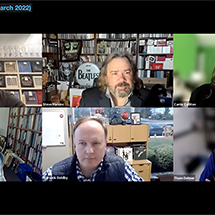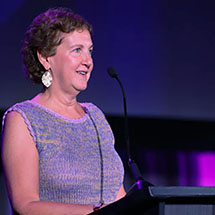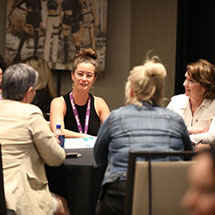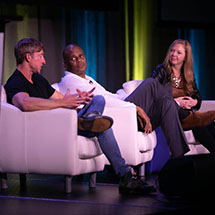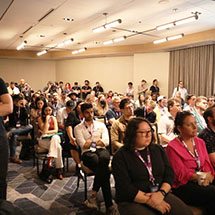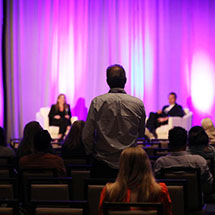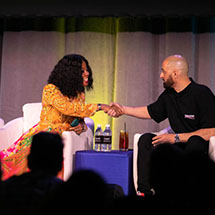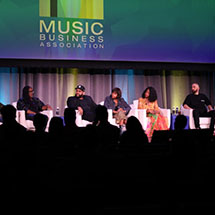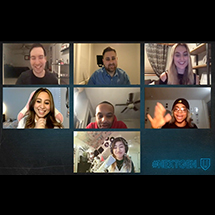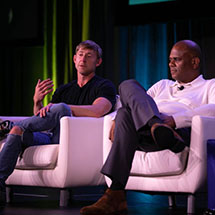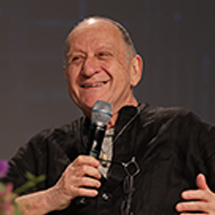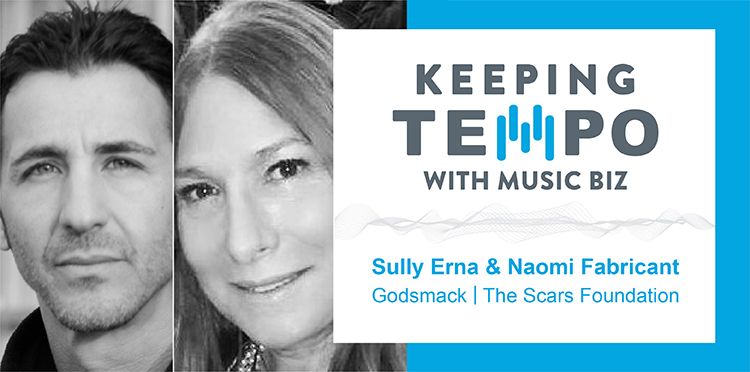
[Keeping Tempo With Music Biz] Reflecting on the State of Mental Health in the Music Industry: Q&A with Godsmack’s Sully Erna & The Scars Foundation

The conversation behind openly discussing mental health & wellness is rapidly changing, as we collaborate on solutions for problems we all deal with instead of letting them fester unaddressed in the shadows. The Scars Foundation is one such voice that works to support those struggling with underlying issues of depression, addiction, bullying, abuse, disabilities and beyond through funding and education. We sat down with Godsmack’s Sully Erna, founder of the Scars Foundation, and Naomi Fabricant, the Foundation’s Executive Director, to discuss the origins and mission of the organization, how Music Biz is collaborating with them to support this mission, our upcoming Music Biz LIVE seminar on mental health, and much more!
Music Biz: We want to thank you first and foremost for speaking with us about such an important topic, one that transcends the needs of the music business in a major way. Could we start by discussing the formation of the Scars Foundation and the goals you sought to achieve by establishing it?
Sully Erna: Scars was formed in April of 2019 after writing the song “Under Your Scars,” which addresses how we need to find acceptance with our imperfections and live with them proudly as our battle wounds from life, rather than stuff them down and have us self-destruct over them. I wanted to invest and give back to something that was important to me. I had inherited a lifetime of “scars” myself from my childhood and upbringing, so creating this foundation seemed to be the perfect way to use all those experiences and share the wisdom I’ve acquired through the traumas to help others find their balance and healing.
Naomi Fabricant: Our goal was simple: to help to make people’s lives better and to help save lives.
Music Biz: Sully — you’ve already got your hands full between Godsmack and your solo career, and of course as a family man. What keeps you grounded and motivated to devote your time and energy to the cause of mental health awareness?
SE: I still choose to live miles from where I grew up. It’s rougher and tougher than ever, but it’s a community of good, hard-working people that are trying to do better. Watching their everyday struggles is certainly one of those things that keeps me grounded. My music and my immediate support group like family and life-long friends also keep me motivated. We are all loyal to the end and keep each other in check.
Music Biz: Music Biz was fortunate enough to work with The Scars Foundation to establish the Music Biz Mental Health Fund to offer our membership financial support for those struggling to pay for mental health services. Since you hail from the music industry, was there a specific push within the Scars Foundation to support others within the industry, or were you looking to reach the broadest group of people you could support?
SE: We are looking to reach EVERYONE! I don’t always think these scenarios through as deeply as it may seem — for me, it’s a global issue and an 800 pound gorilla that we are all trying to figure out how to put a dent in and slow it down. Depression is the root of most suicides, which we call the “Silent Killer.” So all of our categories focus on all things that funnel people into depression. We may be the ONLY non-profit that deals with multiple causes of depression in order to get to the root before it consumes them. However, we also understand that it’s a complicated web that is woven to target it before we can help.
That being said, with these categories being so broad and worldwide, our job is to reach as many people worldwide as we can — of all races and colors, or trades and hobbies — if we hope to have a shot at making a difference in saving lives. It’s not about preference when we choose as much as it’s about global contact.
NF: For us, it was to help our music industry family. With this year having been probably the most challenging for our industry with everything shutting down, we felt it was 100% important to do whatever we could to help.
Music Biz: The creative community has for a long time suffered with their mental health issues in silence, pouring that pain into the art they create without an open outlet to discuss how they are coping. What movement in support of artists’ unique needs have you seen take place as discussing mental health begins to lose its stigma worldwide?
SE: Well first off, this is a very complicated question, so I’ll start by echoing what you asked me: “pouring that pain into their art” IS an outlet. It IS the “movement” that’s needed. It’s probably the most credible outlet we have for keeping us alive and coping with another day. Pain may create amazing music, but there’s a price we pay for that genius to manifest.
The “Artist” can also be a very complex puzzle to figure out. Being born with this instilled in you is, most of the time, a bittersweet gift. We do not live the normal 9-to-5 lifestyle. We are placed under microscopes constantly and are still expected to perform flawlessly. We carry a lot of internal pressure to always deliver our vision or art perfectly. Not so much to the public, but for ourselves in executing EXACTLY how we are trying to get these melodies and visions out of our bodies and want our art to be seen and heard. That in itself is a struggle.
NF: Personally, I am seeing more and more artists coming out and talking openly about their challenges, and that’s a great step in the right direction.
SE: The good news is, mental health is certainly being acknowledged now more than ever in the medical fields as a “real clinical illness,” not just someone being told to take a nap when they aren’t feeling well, as if they’re just tired or something. That is helping tremendously for people in these situations to feel validated and come forward to talk about their struggles & feelings. And talking about mental health, not internalizing it, is that simple but very hard first step to take when you begin the healing process.
Music Biz: The trope of “Sex, Drugs & Rock ‘N’ Roll” is quite often associated with artists from the more Rock and Metal oriented scenes. As an artist and performer with origins in those genres, have you seen a shift away from destructive behavior and towards that of uplifting one another, particularly where depression and addiction are concerned?
SE: Absolutely! More “Rockers” than ever now lean far away from those lifestyles. The more the world becomes aware of the consequences you face by using drugs and practicing inappropriate behaviors, the more these musicians and artists don’t want to be seen in that light, nor do they want to face those severe consequences. And in return, they turn their addictions towards healthier lifestyles.
NF: Having worked in addiction recovery and with Scars on mental health initiatives, I’ve seen more artists seeking out and getting treatment.
SE: But let me point out a bit of hypocrisy in your question that I feel is important to educate people on. This is not a heavily weighted lifestyle for Metal or Hard Rock musicians. This is behavior that happens in ALL forms of artists: actors, sports figures, school teachers, etc. Ray Charles was a womanizer and heroin addict. Tiger Woods, Jake La Motta, Mike Tyson, Michael Jackson… the list and variety of people are endless. “Sex, Drugs and Rock n Roll” is a choice of lifestyle, not a Heavy Metal band’s behavior.
Music Biz: We’re now 14 months out from the first round of shutdowns due to the COVID-19 pandemic, which has effectively halting the entire live/touring business until it is safe to gather in groups again. This has obviously resulted in major financial and emotional burdens on the performing artists, their crews and venue staffs worldwide. With vaccine rollout beginning to hit a solid pace, are you optimistic for the return of live music, something often stated as a major cathartic outlet for both artists and music fans alike?
SE: 100% it’ll be back — it’s already happening in some states. Simple and to the point, music will never die or be abolished, that’d be impossible! It’s a universal gift and no pandemic, virus, or worldwide illness can stop it. And this world has been through more difficult situations than this and has overcome it. It will just take time to clean up the mess, but we are ALL going to be just fine. I guarantee it!
Music Biz: One possible silver lining that can be taken from the pandemic is that the dramatic lifestyle shifts we’re all experiencing have shed light on how our hectic day-to-day routines can hinder our ability to address — or even recognize — mental health issues we may experience. As mental health advocates, are there insights you’ve gained through the past year — either professionally or personally — that you’d be willing to share?
SE: Well traffic was certainly a pleasure for once to deal with. I’m not looking forward to sitting in gridlock again — LOL!
On a more serious note, the world is changing because of this, and for every negative there is always more positive. We are seeing industries changing their entire work model, schooling changing how they teach, and families adjusting to their lifestyles at home. As with all innovations, some work and some don’t. As the dust settles, we will filter out what doesn’t work and embrace and evolve what does.
NF: Personally I have implemented the one-day-at-a-time protocol, along with the idea of following a 360-degree approach every day for mental, physical and spiritual well-being.
Music Biz: Later this month, we are partnering with you to present our “Music Biz LIVE: Mind Your Health” event, which will offer attendees a candid conversation on the music industry’s evolving approach to mental health and wellness. What do you hope to communicate with those attending the event?
SE: Above all else, the relevance and importance of transparency and visibility for people’s personal struggles with mental health.
NF: I hope that we can communicate that no matter what your role is, everyone is vulnerable, and everyone can get help. The Scars Foundation focuses on sharing your stories and instead of them holding you down, that they in fact empower you — I hope to get that message across.
Music Biz: Looking to the future, are there goals or milestones you’d like to see the Scars Foundation achieve on your path to supporting the mental health needs of others?
SE: Our milestones are all the same: to help save lives and help people find healthier lifestyles to live while we’re here for a very short time on the planet. My goal is to grow The Scars Foundation into a 10 million pound gorilla that can swallow up the 800 pound gorilla!
NF: We use music to heal and open people up to more discussions. My hope is that we can get our programs and sessions to more and more people to offer them help. The next milestone is our annual fundraiser, which this year will be a concert, and we hope that it will evolve into an ongoing, growing festival.
Music Biz: Lastly: are there any resources you’d like to share with those among our readership that may be struggling with any type of mental health issues at the moment?
NF: We work with a number of different resources and they are all on our website, but for addiction we highly recommend intherooms.com. We’ve also partnered with the National Junior Tennis League and Ernie Boch’s Music Drives Us programs.
Editor’s Note: If you or someone you know is experiencing a mental health crisis, we urge you to reach out to the National Suicide Prevention Lifeline at 1-800-273-8255. This toll-free hotline provides 24/7 service for those in crisis, and the lifeline’s 160 crisis centers offer essential mental health services to all who need them.
Hear more from Sully during his keynote interview during our May 19th event, Music Biz LIVE: Mind Your Health, a 90-minute look into the music industry’s changing approach to mental health — learn more and register here.
You can read past “Keeping Tempo” articles via the portal linked here. And, stay tuned for more insightful discussions from our members and industry partners!

